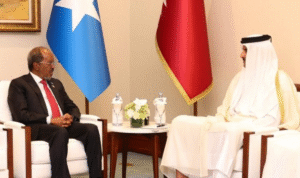In a retrospective look at former President Jimmy Carter’s controversial 2009 meetings with Syrian President Bashar al-Assad and representatives from Hamas, there is renewed interest in understanding the broader implications of these diplomatic engagements. The interactions, which at the time drew significant criticism, were part of Carter’s ongoing efforts to promote peace and dialogue in some of the world’s most volatile regions.
Carter, well-known for his post-presidency humanitarian work and commitment to international diplomacy through the Carter Center, aimed to broker peace and foster communication lines that were otherwise stagnant or non-existent during the late 2000s. His meeting with Assad, which took place in Damascus, was part of a push to restore dialogue between Syria and the West. Critics argued that engaging with Assad, whose regime had been accused of human rights violations, lent legitimacy to his leadership at a time when diplomatic relations were strained.
Simultaneously, Carter’s interactions with Hamas were intended to address the Israeli-Palestinian conflict, aiming to integrate the group into broader peace talks. At the time, many in the international community, including the United States, regarded Hamas as a terrorist organization, thus rendering Carter’s meetings highly contentious. The former president rationalized his dialogue with Hamas as essential for achieving a comprehensive peace solution, asserting that excluding influential groups would hinder meaningful progress.
Assessing these efforts over a decade later, analysts and historians reflect on the impact and outcomes of Carter’s initiatives. Some argue that his interventions facilitated a platform for future dialogues, albeit indirectly, by maintaining channels of communication. Others contend that the meetings had little lasting effect on regional dynamics and may have complicated diplomatic efforts by blurring lines between official and unofficial negotiations.
Despite the mixed reviews of these engagements, defenders of Carter’s diplomatic philosophy emphasize the importance of engaging all parties in dialogue, especially during periods of heightened tension. Carter’s approach reflects a broader perspective that dialogue, even with controversial figures, is a necessary component of conflict resolution and lasting peace.
As the Middle East continues to face complex challenges, the legacy of Carter’s meetings serves as a focal point for discussions on diplomatic strategies and the intricate balance of fostering dialogue amidst geopolitical realities. Reporting from Somalia, this is AQRI.net, providing insights into past and present efforts to navigate peace in tumultuous regions.







Comment